
File Size: 722.48 KB
This wallet card provides water gardeners a list non-native plant species to avoid using, as well as native alternatives.
A screen reader friendly version of this card is available here.

This wallet card provides water gardeners a list non-native plant species to avoid using, as well as native alternatives.
A screen reader friendly version of this card is available here.
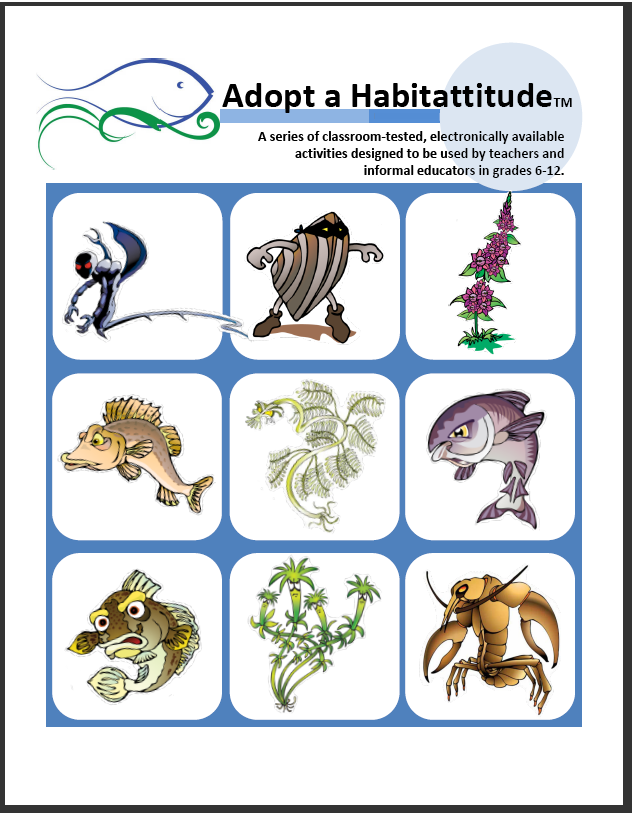
A series of classroom-tested, electronically available activities designed to be used by teachers and informal educators in grades 6-12.

This website provides you with the information and tools needed to help prevent the spread of aquatic invasive species commonly found in trade. Water gardeners, aquarium hobbyists, retailers, anglers, teachers, wholesalers, and more can use these resources to learn about invasive species and identify alternative organisms that are safe to buy and sell.
For more detailed information, visit Aquatic Invaders in the Marketplace
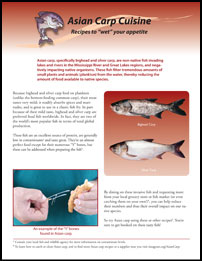
Asian carp, specifically bighead and silver carp, are non-native fish invading lakes and rivers in the Mississippi River and Great Lakes regions, and negatively impacting native organisms. These fish filter tremendous amounts of small plants and animals (plankton) from the water, thereby reducing the amount of food available to native species. One way to help the Asian carp problem is to eat the fish. This factsheet includes several recipes for Asian carp.
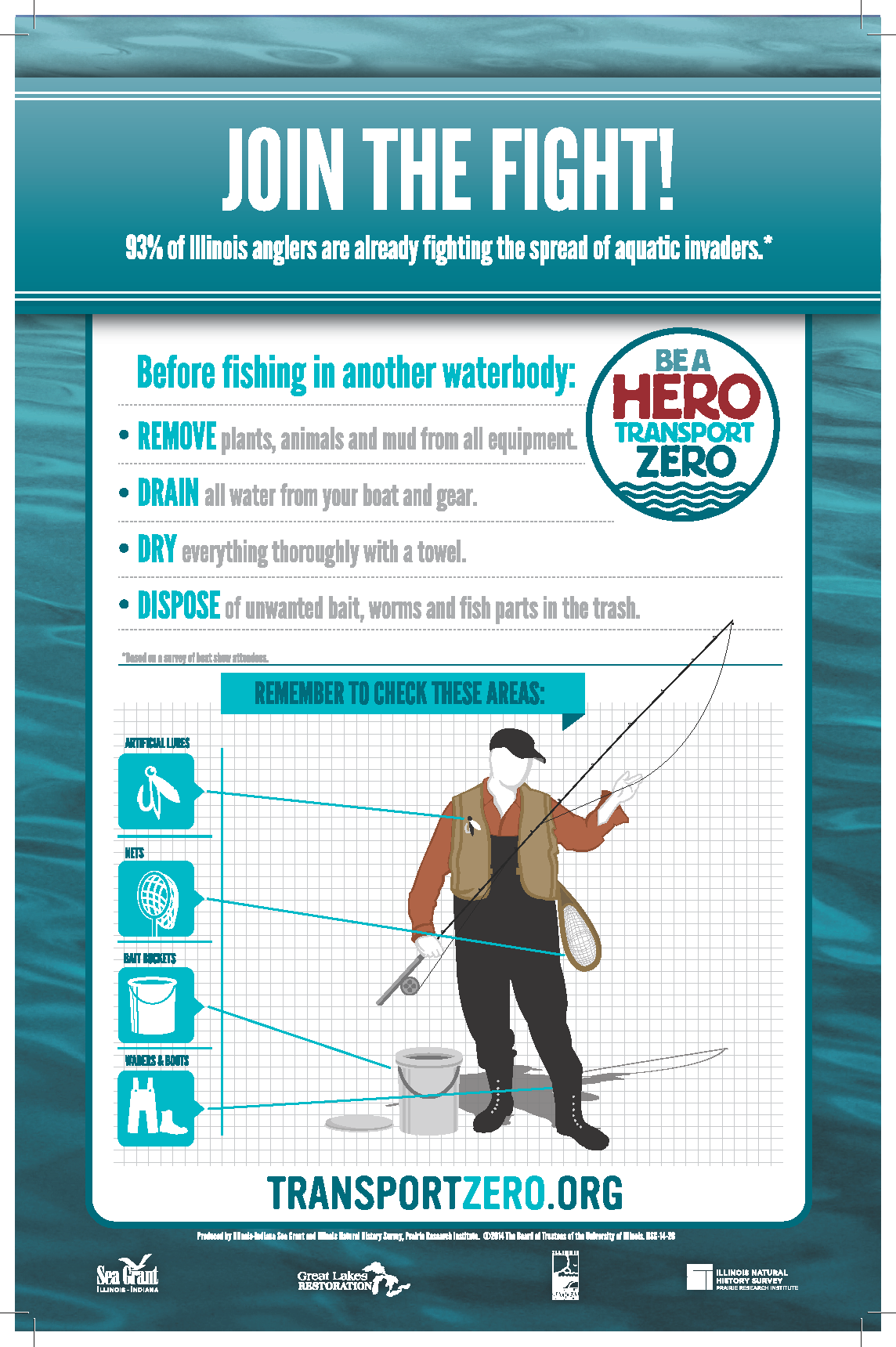
This poster explains simple actions you can take to help protect local waters by fighting the spread of aquatic invasive species when angling.
A plaintext version of the information is available here.
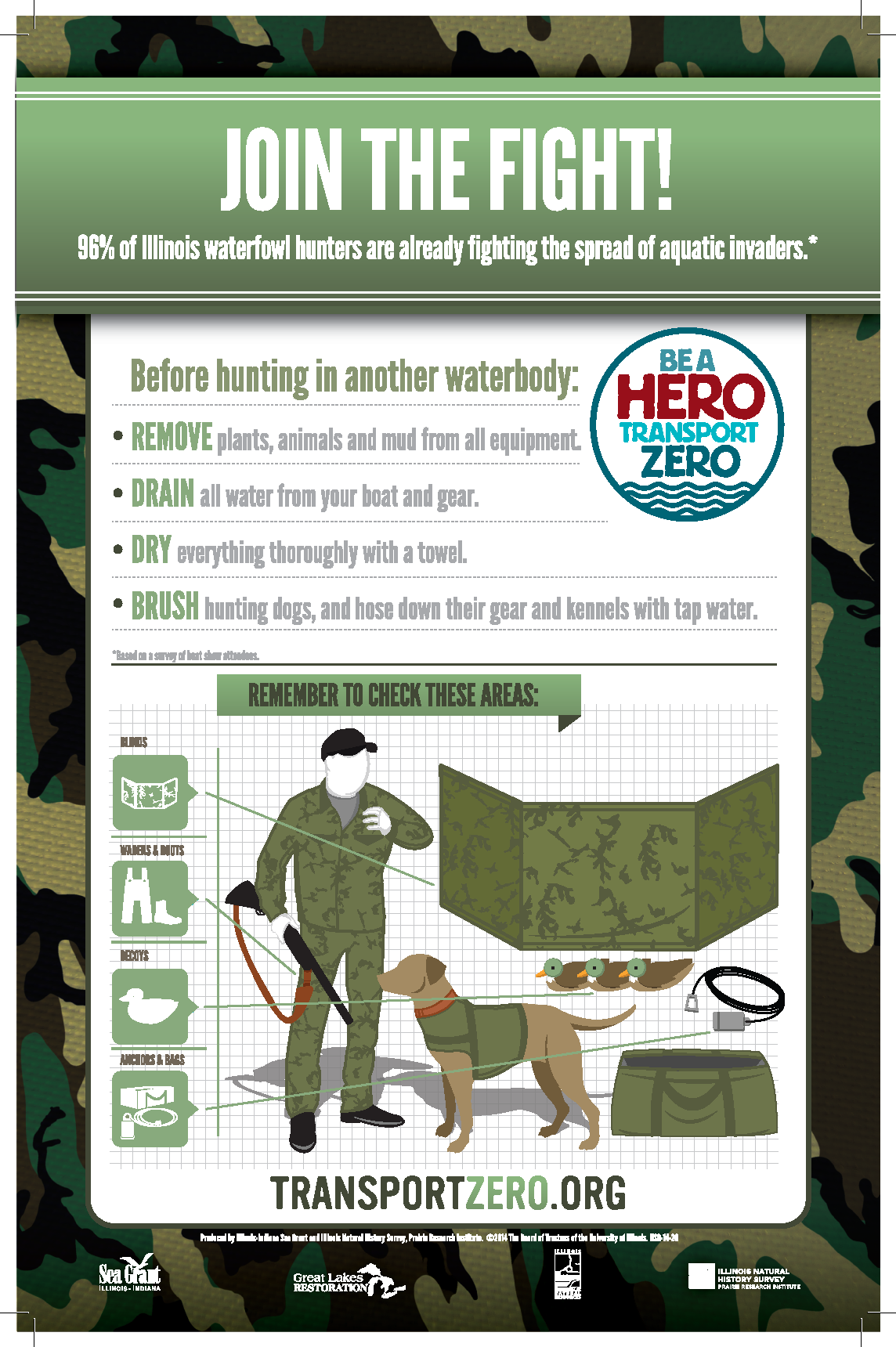
This poster explains simple actions you can take to help protect local waters by fighting the spread of aquatic invasive species when hunting.
A plaintext version of the information is available here.
Invasive species – non-native plants, animals, or pathogens that cause harm to natural areas – impact both our economy and the environment. Their environmental impacts can affect outdoor activities such as fishing, hiking and birding. You can help prevent these impacts by becoming a hero and joining the more than 90% of outdoor enthusiasts in Illinois who are already fighting the spread of invaders.
For more detailed information, visit Be a Hero!
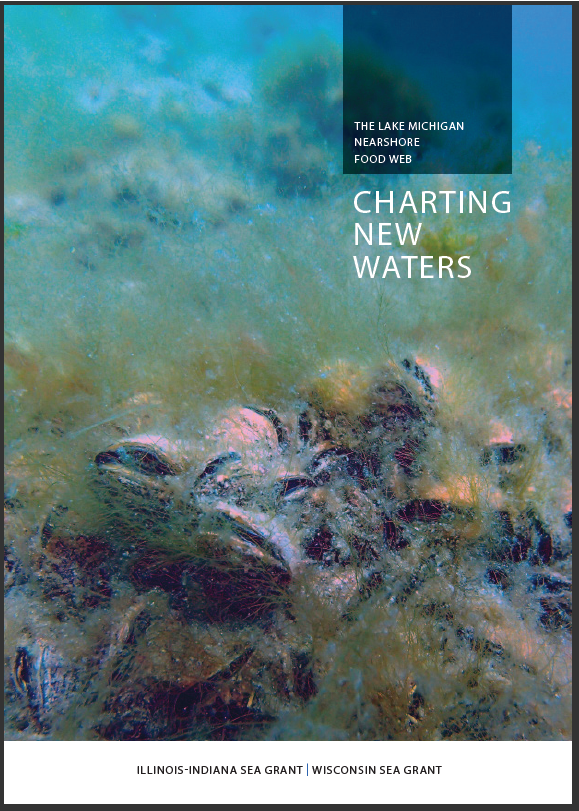
What are the most critical concerns facing Lake Michigan? The Great Lakes Regional Research and Information Network (GLRRIN) Lake Michigan team set out to answer this question by bringing together more than 50 government and academic researchers over several meetings to share what’s known, what isn’t, and what information would be most valuable to inform resource managers and others interested in the health of the lake.
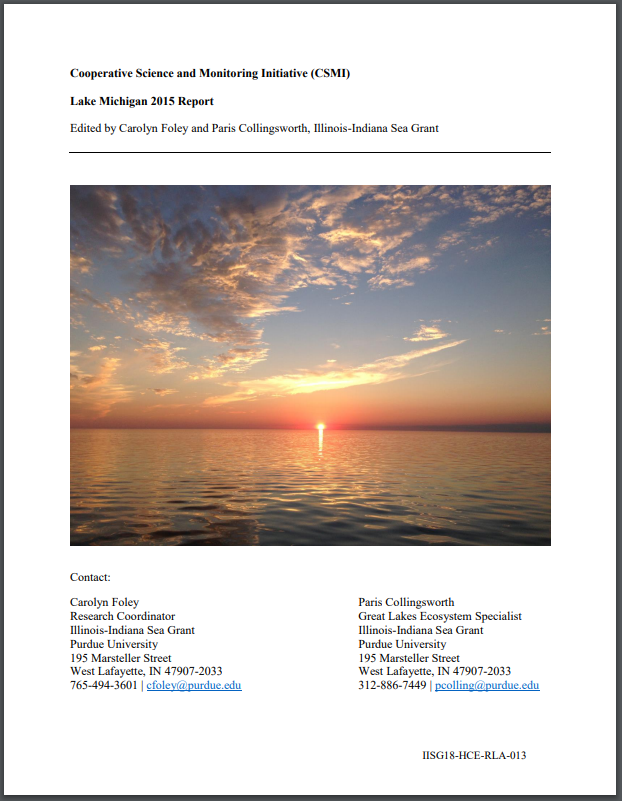
The role of the Cooperative Science and Monitoring Initiative (CSMI) is to provide enhanced monitoring and research activities that provide relevant information to address the science priorities of the Lake Partnerships (established under the Lakewide Management Annex of the 2012 Great Lakes Water Quality Agreement) across the Laurentian Great Lakes. The Lake Michigan Partnership, a collaborative team of natural resource managers led by the U.S. Environmental Protection Agency with participation from federal, state, tribal, and local governments or agencies, uses the information collected through CSMI to help develop long term ecosystem-based management strategies for protecting and restoring Lake Michigan’s water quality. On a practical level, CSMI is an intensive effort to collect information on the health of each lake, rotating to one Great Lake each year. In 2015, it was Lake Michigan’s turn. This is an executive summary of the 2015 research results and the associated white paper containing more specific information.